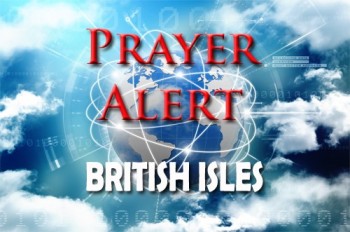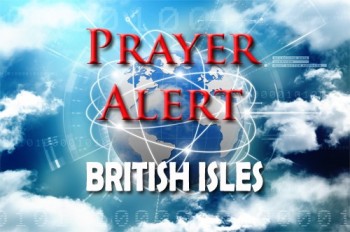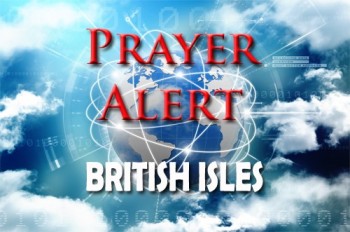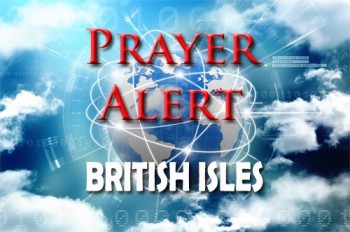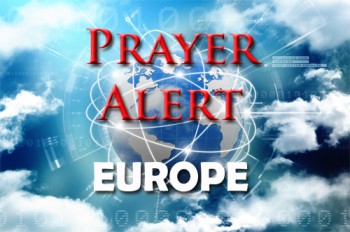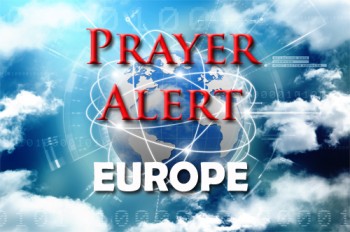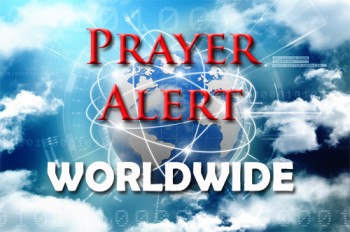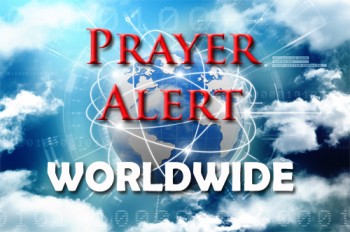
David Fletcher
David Fletcher is Prayer Alert’s Editor.
He is part of a voluntary team who research, proof-read and publish Prayer Alert each week.
If you would like to make a donation towards our running costs, please click here.
In what is believed to be a UK policing first, the Metropolitan Police Service has announced that new police constable recruits will be able to join the service in a part-time role from November. They will complete police training part-time, and hit the streets of London part-time.. The new scheme was born out of the Met’s celebrations to recognise the contribution of women to the service over the last 100 years. However, the opportunity is open to both men and women, and it is hoped it will help achieve the Commissioner’s long-term ambition of a police service in which men and women are equally represented. Part-time policing will give the flexibility to balance their work and family life.
Hospitals are meant to start cancer treatment within 62 days of an urgent GP referral. Government cancer strategies have always insisted that meeting that deadline is vital in order to ease patient anxiety, lower the risk of complications, and improve outcomes. It is impossible to tell exactly what impact waiting longer might have: much depends on the type of cancer and whether it is diagnosed at an advanced stage or not. Nearly three-quarters of services are failing to meet that deadline. The worst performer was the Maidstone and Tunbridge Wells trust, which saw fewer than 61% of patients within 62 days. Bosses there said they had seen a larger surge in demand than in other services. Other trusts have also pointed to increased demand, with the biggest regional centres seeing the most complex cases that tend to take the longest time.
The New IRA claimed responsibility for a sophisticated high-powered bomb under the car of a police officer, who was lucky to escape with his life. The attempted attack, at a Belfast golf course, was the first carried out by the New IRA since journalist Lyra McKee was shot dead in April. The bomb contained a mercury tilt switch; any sudden movement triggers an explosion. The device would have exploded if it was not for the level terrain the car had travelled on. An IRA statement read, ‘We were unlucky this time but we only have to be lucky once’. Two cars linked to the bomb attack were set on fire in Belfast the following day. One of the vehicles had Dublin number plates. The conflict in Northern Ireland, which has killed thousands, has political and religious roots that are centuries old. Pray for God to remove ancient spiritual stubble and roots that are still producing hatred in the land (Malachi 4:1).
Buy Now Pay Later (BNPL) borrowing includes catalogue credit, store cards and retailers finance at the point of sale. New measures require retailers to present BNPL offers more clearly, give adequate explanations of costs and negative consequences; and prompt people when the 0% interest period expires to allow them to repay the full balance before incurring charges. Debt charity StepChange welcomes the modest changes, but doubts whether they will fully achieve their objective. It would like to see a closer look at the use of discounts and incentives, and would like to see continued scrutiny in this area, to ensure consumers are protected against poor practice. Citizens Advice said, ‘The new rules won’t stop people being hit by unexpected costs on unpaid amounts. To protect people better, the FCA should only allow firms to charge interest once the promotional period ends.’
Moscow police had detained Ivan Golunov, an anti-corruption journalist, for alleged drug offences. However, they had to drop charges against him after his arrest caused displays of support from other Russian journalists and cultural figures, 25,000 people expressing their disgust on Facebook, and a threatened protest march. Police involved in the case were removed from duty pending investigations, and President Vladimir Putin will be asked to dismiss more senior personnel. The Kremlin admitted that ‘mistakes had possibly been made’. Forensic tests did not detect Ivan’s fingerprints on the drugs purportedly seized from his home, neither was there any trace of drugs in his urine or on his fingers. Photographs supposedly showing a drug lab at his flat were later deleted after a policeman admitted they were taken at a different location and bore no relation to the journalist. Human rights groups said police in Russia often plant drugs on suspects.
Protesters were met with tear gas and flares on the streets of Tirana, after Albania’s president Ilir Meta cancelled the 30 June elections. He cited political tensions in the country, stating that circumstances do not provide the necessary conditions for true, democratic, representative and all-inclusive elections. The opposing centre-right Democratic Party, led by Lulzim Basha, have held weeks of protests aimed at forcing the prime minister to stand down. They accuse him of links to organised crime and vote-rigging. The United States and the EU are urging protesters to disavow violence and take part in dialogue with government representatives to resolve the political crisis. The EU has criticised some violent tactics used by protesters. Smoke bombs and firecrackers outside parliament were met with tear gas. Mr Basha has urged continuing protests until Mr Rama steps down.
A proposed bill allowing mainland China to pursue government critics and criminals in Hong Kong and extradite them to China drew protest marches by thousands on 9-11 June, causing a debate on 12 June to be cancelled. The Catholic diocese of Hong Kong joined the social welfare sector and the largest teachers’ union in voicing concerns about the bill. Two thousand counsellors, carers, therapists, and religious groups went on strike. A strike organiser said, ‘We are forced to take a stand on this moral question of right and wrong.’ Several other Christian denominations in Hong Kong also voiced concerns. Police fired rubber bullets and tear gas at protesters, who threw bricks and projectiles back. People are worried that the civil rights and freedoms guaranteed to Hong Kong under the ‘one country two systems’ arrangement will be eroded under the new law. China often uses accusations of non-political crimes to prosecute its critics.
Half of the world’s 1.2 billion Catholics live in the Americas, a quarter in Europe, and the rest in Africa and Asia. Catholicism is slowly declining. Traditionally Catholic countries are becoming mixed populations of Catholics, non-religious, and Pentecostals. Child sex abuse scandals continue to unfold globally, causing more people to leave the Church. Folk Catholicism is very common. Mixed with pre-Christian influences, this is a faith of saints, fiestas and hoped-for miracles, an attempted short-cut to blessing and spiritual power that is at times very dark. Charismatic renewal has a wide impact with the involvement of lay people, and the balance between adoration and activism gives charismatics a vitality lacking in much of Catholicism globally. A truly renewed Catholic Church would be a great force for good in the world. Pray that its current trials will result in a fresh consecration to Jesus.
Last week Sudanese protesters were subjected to brutal military crackdowns, increasing concern about the future. Amnesty International reported that government forces continue to commit war crimes in the Darfur region, and blames the Rapid Support Forces (called Janjaweed by pro-democracy campaigners). The UN and African Union will soon decide whether to withdraw thousands of international peacekeepers from Darfur, leaving tens of thousands of civilians vulnerable to further attacks by Janjaweed. Tibor Nagy, the US assistant secretary for Africa, is calling for attacks against civilians to stop and for talks between the two sides to resume. He will also meet the Ethiopian prime minister, who has been trying to mediate between the military council and the opposition. Last week you prayed for an end to criminal acts of violence and for a negotiated peaceful solution. Please also pray for international engagement with Sudan to prevent widespread identity-based violence against ethnic, religious, political and other at-risk populations. See
Mrs Adeleye and her stepson, Destiny Paul, were driving home from church on 9 June when Fulani herdsmen blocked the road with cows. She tried to turn their car and escape but they attacked, damaged her car, and abducted them both the boy. They later demanded N10 million ransom from her husband. The police said they had swung into action, and would soon get the victims free, unhurt. Attacks on Christians in Nigeria are growing in ferocity and frequency according to Father John Bakeni, a priest who works with survivors of extremist violence. He said, ’The ongoing conflict with Boko Haram and attacks by predominantly Islamist Fulani shepherds have instilled great uncertainty and fear in us Nigerians. We consider each day we live in safety a blessing, because we do not know what will happen the next day.’ He added, ‘It is very difficult to be a Christian in this part of the world, but our faith encourages us to bear witness to the Gospel bravely.’ See

